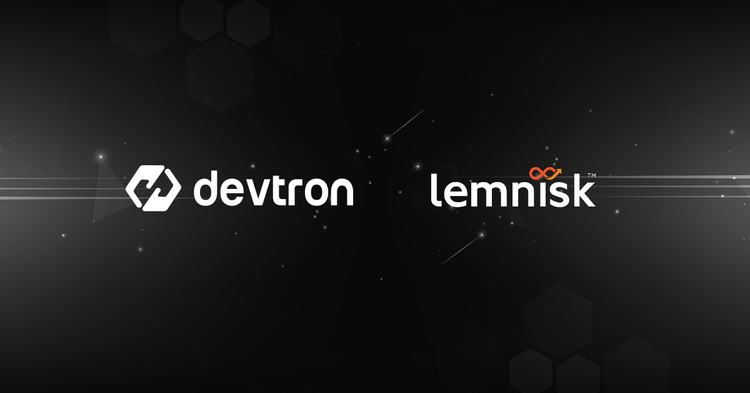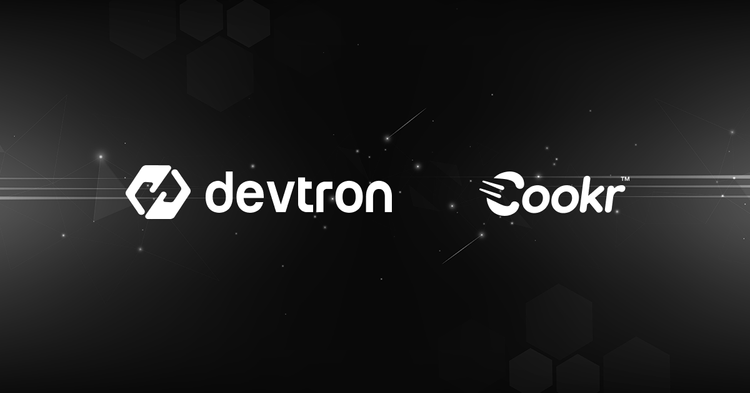Achieved Milestones
- Time to Market Reduced by 50%
- DevOps Dependencies were Reduced by 70%
- Production Stability Improved by 80%
- 60% Increase in Developer Productivity
- Automated 80% of the Production Released
- Streamlined Multi-Cluster Deployment and Visibility
About the Company
Xoxoday is a leading SaaS platform empowering organizations with innovative solutions for employee engagement, customer rewards, and partner incentives. Founded with the mission to simplify and enhance the rewarding experience, Xoxoday provides a robust suite of products, including digital rewards, gamification tools, and analytics, designed to foster motivation and drive growth. Trusted by businesses across diverse industries, Xoxoday’s solutions are used by enterprises globally to recognize achievements, enhance productivity, and strengthen relationships.
Background
Xoxoday has consistently demonstrated a commitment to evolving with technology to deliver a seamless experience for its users. As a tech-enabled platform, they have continuously enhanced their infrastructure to ensure it is robust and scalable. In the early stages, application deployments were performed manually on servers, involving processes like pulling fresh code from Git repositories and updating versions; a time-intensive approach. The introduction of Jenkins marked a significant step toward automation, enabling streamlined deployments. However, it fell short of meeting the demands of a production-grade environment. The team also explored containerizing applications and deploying them on Kubernetes in lower environments. While these efforts showed promise, they did not provide the level of confidence required to fully transition to Kubernetes for production workloads. This journey underscored the need for a Kubernetes-native CI/CD platform to simplify and optimize deployments. After evaluating multiple tools, the team chose to invest in Devtron, recognizing its potential to address these challenges and elevate their deployment processes.
Challenges
Xoxoday's deployment process, before adopting Devtron, was a mix of manual effort and semi-automated workflows that often fell short of meeting the demands of a fast-growing tech platform. The reliance on traditional methods and limited automation introduced inefficiencies, slowed down releases, and posed operational challenges. As the company scales across different regions such as UAE, US, and APC, so does the need for a robust platform that scales as per the demands. Here are some of the major challenges faced,
- Prolonged Longer Sprints: The deployment process consumed significant time and effort, stretching development cycles and extending sprints far beyond the desired timelines. Preparing comprehensive documentation for changes moving to staging and production environments was a time-intensive task. This resulted in delays in delivering features and updates to end users.
- Manual Deployments: Since the deployment was not completely streamlined, a bigger chunk of the puzzle was manually done which not only consumed valuable time of DevOps teams but also increased the risk of human errors.
- Continuous Testing: Continuous testing was again one of the bigger challenges. For testing any minor changes, it has to go through the entire build process and developers need to wait until it is deployed by the Ops teams.
- Rollback: Rolling back deployments in case of issues was a major hurdle, requiring substantial manual intervention and time. The lack of a proper rollback mechanism increased the risk of downtime and disruptions.
- Dependencies on DevOps: Development teams relied heavily on DevOps for deployment, troubleshooting, and maintaining infrastructure. This dependency created bottlenecks, especially during high-demand periods, slowing down the overall workflow.
- Debugging & Troubleshooting: Identifying and resolving issues in production and staging environments was a laborious process. The absence of centralized tools for visibility and debugging made troubleshooting time-consuming and error-prone. Kubernetes by default is a complex piece of the puzzle where developers rely on the Ops team to help them debug issues in lower-end environments during the testing phase.
- Multi-Cluster Deployments: Managing deployments across multiple regions and Kubernetes clusters presented a unique set of challenges. Without a centralized platform to orchestrate and monitor these deployments, keeping track of release versions, ensuring consistency across clusters, and troubleshooting issues became increasingly difficult.
Solution: The Devtron Platform
Managing deployments across multiple clusters and regions is a common challenge for organizations aiming to scale their infrastructure efficiently. To overcome these hurdles and streamline their continuous integration (CI) and continuous deployment (CD) pipelines, Xoxoday adopted the Devtron Platform. This decision transformed their software development lifecycle (SDLC) by introducing automation, enhancing deployment reliability, and significantly improving team productivity. Below are some of the key features of Devtron that Xoxoday leveraged:
Key Features Leveraged
- Kubernetes-native CI/CD: Xoxoday leveraged Devtron’s Kubernetes-native CI/CD pipelines to unify their continuous integration (CI) and continuous deployment (CD) processes. By managing everything under a single, centralized platform, they significantly streamlined their deployment workflows, reducing manual effort and enhancing reliability.
- Build Plugins Integration: To strengthen the security of their source code, the team utilized Devtron's integrated build plugins. This included seamlessly integrating SonarQube into their build pipelines, enabling automated code analysis, and ensuring that code quality and security standards were consistently met.
- Fine-Grained RBAC: Devtron’s fine-grained Role-Based Access Control (RBAC) provided Xoxoday with granular control over access to Kubernetes workloads and applications. By defining specific roles for different user personas, the platform empowered developers to work independently within predefined guardrails, ensuring secure and efficient access management while minimizing risks.
- Integrated DevSecOps: Xoxoday capitalized on Devtron’s integrated DevSecOps capabilities to enhance security at every stage of the development lifecycle. By implementing hierarchical security policies provided by the platform, they were able to enforce consistent security standards across environments. Additionally, automated image scanning within the build pipelines enabled the team to identify vulnerabilities in container images early in the process, while also providing actionable insights and potential fixes to address these issues proactively.
- Multi-Cluster Deployments: Devtron’s Kubernetes-native design enables seamless deployments at scale across multiple tenants, clusters, and regions. Xoxoday successfully leveraged Devtron’s flexibility to create custom workflows (CI/CD pipelines) and implement parallel pipelines, ensuring consistent deployment of the same application version across multiple regions. As a global platform with deployments spanning regions such as the UAE, US, and APAC, maintaining synchronization and achieving clear visibility across these clusters was a significant challenge. Devtron’s centralized management and monitoring capabilities resolved this issue, providing Xoxoday with a streamlined and efficient multi-cluster deployment solution.
- Advanced Deployment Strategies: Devtron’s advanced deployment strategies enabled Xoxoday to seamlessly adopt Blue-Green deployments, allowing them to release updates with zero downtime and minimal risk. This approach improved their deployment patterns by enabling smooth production releases, ensuring that updates could be rolled out without worrying about potential disruptions or breaking changes.
- Automation: By consolidating and streamlining CI/CD workflows under a single unified platform, Devtron drastically reduced manual efforts in Xoxoday’s deployment processes. This automation significantly improved production releases, reducing sprint cycles from month-long to biweekly. As a result, Xoxoday achieved a 50% reduction in time-to-market, enabling faster delivery of updates and features to their users.
- Pre/Post Build & Deployment: Xoxoday leveraged Devtron's pre/post stages in workflows to automate additional tasks and enhance operational efficiency. For instance, they utilized the post-deployment stage to add notifiers that automatically informed stakeholders about the release status, ensuring better communication and transparency throughout the deployment process.
- Strategic Rollback: Previously, Xoxoday lacked a proper rollback mechanism, making error recovery a challenge. With Devtron’s built-in strategic rollback capabilities, the team gained the ability to efficiently revert releases when necessary, minimizing downtime and ensuring stability during production incidents.
- Self-Serve Enablement: Devtron empowered Xoxoday’s teams to adopt a self-serve model, significantly reducing dependencies on DevOps teams and boosting developer productivity. Developers could access application metrics, real-time logs, container insights, events, and more via an intuitive graphical user interface, all from a single platform. Additionally, the ability to integrate continuous testing for lower environments enabled the team to validate minor changes without restarting the entire process, accelerating delivery and reducing bottlenecks.
Results & Business Impact
The above key features played a pivotal role in transforming Xoxoday’s deployment processes, enabling them to streamline workflows, enhance operational efficiency, and ensure consistent, reliable releases. By addressing critical challenges and automating repetitive tasks, these capabilities significantly improved their overall deployment patterns, empowering teams to deliver faster and more confidently, hence increasing production stability by 80%. Here are some of the milestones achieved with this collaboration:
- reducing the month-long sprint cycles to biweekly,
- automated end-to-end production releases by 80%,
- 70% dependencies on the devops team have been reduced,
- improved the developer productivity by 60%, allowing them to own what they do; building a self-serve model
~ said Srivatsan Mohan, CTO of Giift-Xoxoday
Conclusion
The successful collaboration between Xoxoday and Devtron highlights how innovation and teamwork can drive transformative results. By leveraging Devtron's Kubernetes-native platform, Xoxoday overcame their operational challenges and achieved remarkable milestones, such as a 50% reduction in time-to-market, enhanced production stability, and a significant boost in developer productivity.
This partnership exemplifies how Devtron's robust platform, combined with Xoxoday’s commitment to innovation, created an ecosystem of efficiency, reliability, and scalability. The close alignment and shared focus on streamlining processes enabled Xoxoday to transition to a self-serve model, reduce dependencies on DevOps teams, and confidently adopt advanced deployment strategies. Together, the teams not only modernized Xoxoday’s software development lifecycle but also set a strong foundation for future growth and success in delivering exceptional user experiences.






